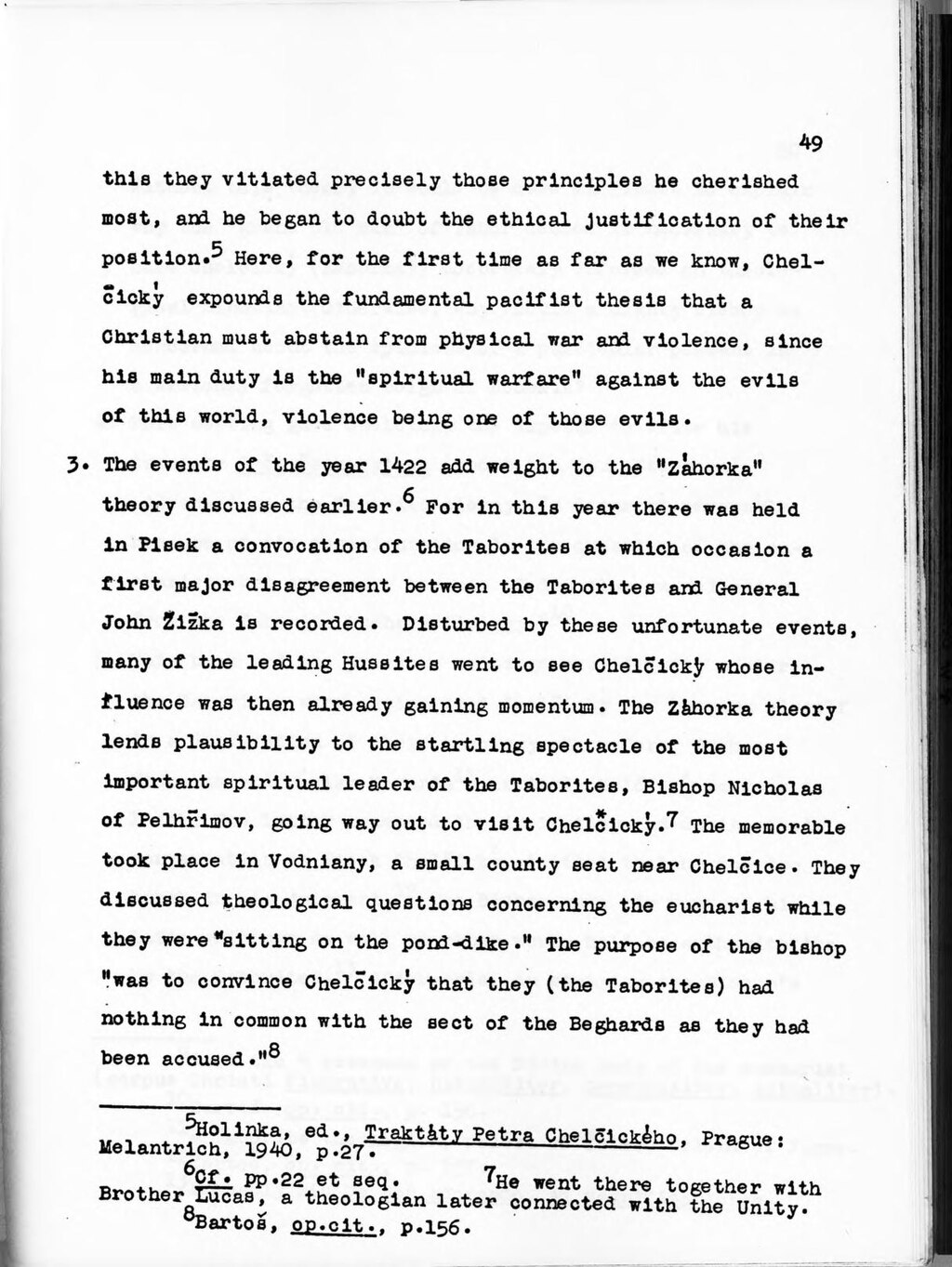49
this they vitiated precisely those principles he cherished most, and he began to doubt the ethical justification of their position.5 Here, for the first time as far as we know, Chelc̄icky̍ expounds the fundamental pacifist thesis that a Christian must abstain from physical war and violence, since his main duty is the "spiritual warfare" against the evils of this world, violence being one of those evils.
3.
The events of the year 1422 add weight to the "Za̍horka" theory discussed earlier.6 For in this year there was held in Pisek a convocation of the Taborites at which occasion a first major disagreement between the Taborites and General John Z̄iz̄ka is recorded. Disturbed by these unfortunate events, many of the leading Hussites went to see Chelc̄icky̍ whose influence was then already gaining momentum. The Za̍horka theory lends plausibility to the startling spectacle of the most important spiritual leader of the Taborites, Bishop Nicholas of Pelhr̄imov, going way out to visit Chelc⃰icky̍.7 The memorable took place in Vodniany, a small county seat near Chelc̄ice. They discussed theological questions concerning the eucharist while they were "sitting on the pond-dike." The purpose of the bishop "was to convince Chelc̄icky̍ that they (the Taborites) had nothing in common with the sect of the Beghards as they had been accused."8
